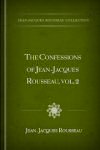Jean-Jacques Rousseau Collection (5 vols.)
Digital Logos Edition
Overview
Jean-Jacques Rousseau stands in the middle of the eighteenth-century shift from the Enlightenment to Romanticism in the eighteenth century. His The Social Contract and A Discourse upon the Origin and Foundation of the Inequality among Mankind had a major influence on the leaders of the French Revolution. He was a friend of Enlightenment thinkers like Diderot, and a contributor to the great Enlightenment project, Encyclopedie. Yet Rousseau’s work is often at odds with the strict scientific rationalism of many Enlightenment thinkers. Rousseau encourages emotional expression and emphasizes the importance of freedom in educational development.
The Jean-Jacques Rousseau Collection brings together Rousseau’s most important works. This collection links to the other books in your digital library, allowing you to cross-reference with a click. Near-instant searches allow you to jump to important sections in Rousseau’s work.

Key Features
- Two seminal works on political philosophy
- The full text of Rousseau’s Émile, an important work in the development of modern education
- Rousseau’s complete autobiography
Product Details
- Title: Jean-Jacques Rousseau Collection
- Author: Jean-Jacques Rousseau
- Volumes: 5
- Pages: 1,605
- Resource Type: Topical
- Topic: Modern Philosophy
This title is included in the following collections
You can save when you purchase this product as part of a collection.
Modern Philosophy Research Lib...
$499.99$499.99Philosophy Research Library (1...
$799.99$799.99Verbum 7 Portfolio Legacy Libr...
$4,749.99$4,749.99
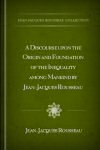
Rousseau wrote A Discourse upon the Origin and Foundation of the Inequality among Mankind (also known as the Second Discourse) in 1754, as a response to an essay competition by the Academy of Dijon. The discourse was an answer to the question: “What is the origin of inequality among men, and is it authorized by natural law?” Rousseau separates inequality into two categories: natural/physical inequality and ethical/political. He dismisses the first type as a quality of nature that cannot be escaped. He focuses on the second type, ethical equality, as it is established by human society. He says that civil society is a product of man having deviated from his natural state. He argues that, as such, it is an institution created by the rich and powerful to maintain their control over the poor and weak.
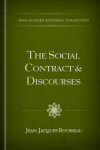
In The Social Contract, Rousseau tries to tackle the problem of inequality he identified in the Discourse on Inequality. Rousseau argues that “man is born free, and everywhere he is in chains.” Rousseau argues that this is because in most societies, the sovereign ruler acts of his own will with both the law and the population beneath him. Rousseau’s solution is the concept of the general will. He proposes a sort of direct democracy in which the population assembles and approves or disapproves of various laws. When the general will of the people supports something, it has the force of law and the authority to require obedience of the people. When that is not the case, says Rousseau, it is not a law at all.
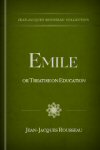
Rousseau considered Émile, or Treatise on Education, the “best and most important of all my writings.” The book builds on The Social Contract, establishing a theory of education that would allow Rousseau’s “natural man” to remain good in the face of a society that is inherently corrupt and corrupting. The book follows the life of Émile as he grows and learns from his tutor.
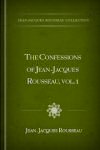
The Confessions of Jean-Jacques Rousseau is Rousseau’s autobiography. Covering the first 53 years of his life, the book was not published until after his death. Rousseau’s Confessions is generally regarded as the first modern autobiography. Volume one contains books I through VI.
About Jean-Jacques Rousseau
Jean-Jacques Rousseau (1712–1778) was born in Geneva to a middle class Protestant family. In 1728, Rousseau moved to Annecy, in France. While there, Rousseau converted to Roman Catholicism at the encouragement of Louise de Warens. In recanting his Calvinism, Rousseau was also giving up his Genevan citizenship. Rousseau moved to Paris in 1742 and developed relationships with the Enlightenment philosophes Diderot and Condillac. Rousseau contributed an article on music to Diderot and d’Alembert’s Encyclopedie. He left Paris for three years to serve at the French Embassy in Venice. When he returned to Paris, he met his future wife, Therese Levasseur, with whom he had five children (all of whom were left at the orphanage). Rousseau eventually left Paris, lived for a time in the French countryside, moved in with the Duke of Luxemburg, and eventually returned to Switzerland. At the invitation of David Hume, Rousseau went to England. After a falling out with Hume, Rousseau returned to France, where he spent the rest of his life. In addition to his works of philosophy, Rousseau wrote seven operas, an autobiography, and a work of fiction. He is credited as one of the first thinkers of the Romantic movement.
Reviews
6 ratings

Randy Lane
7/20/2015
Rodger
12/12/2013
Michael Maria Waldstein
12/7/2013

David Leslie Bond
11/20/2013

Prayson Daniel
11/6/2013

RICHARD A. RAY
10/23/2013
